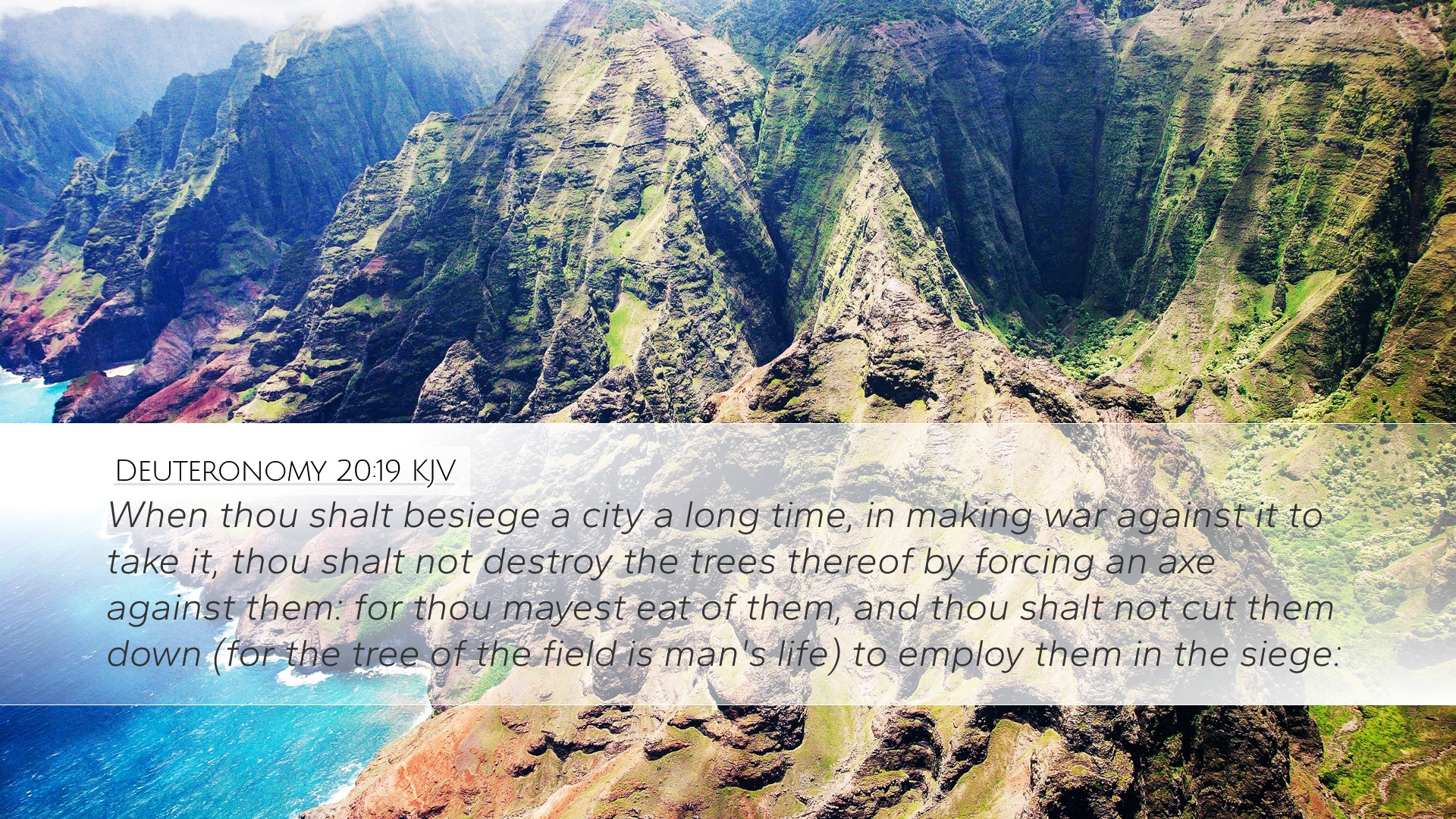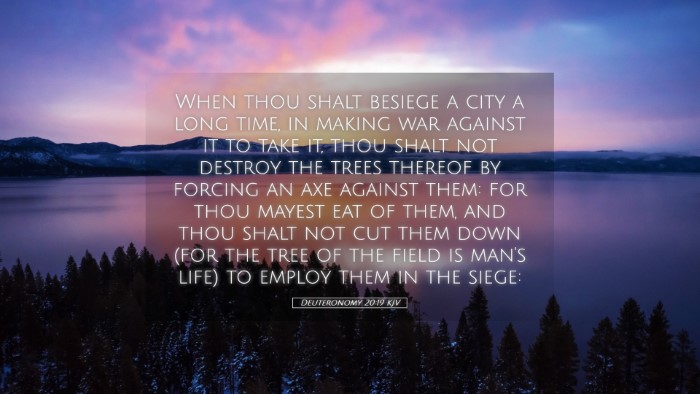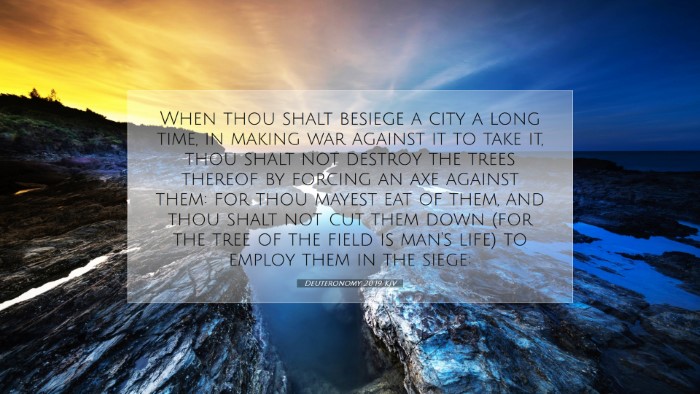Commentary on Deuteronomy 20:19
Text of the Verse
Deuteronomy 20:19 (KJV): "When thou shalt besiege a city a long time, in making war against it to take it, thou shalt not destroy the trees thereof by forcing an axe against them: for thou mayest eat of them, and thou shalt not cut them down (for the tree of the field is man's life) to employ them in the siege."
Introduction
Deuteronomy 20:19 contains principles that reflect the broader ethical concerns of the Israelite community during times of warfare. This verse presents guidelines regarding the treatment of trees during sieges, emphasizing the value of creation and humanity's stewardship over it. The insights provided by various public domain commentaries shed light on the significance of this text for believers today, providing theological, ethical, and practical considerations.
The Context of Deuteronomy 20
This chapter provides instructions about warfare, laying down laws that govern the Israelites in their conquests. It delineates how to conduct themselves in battle, focusing on moral responsibilities. Matthew Henry points out that these verses highlight God's concern for justice and humanity, underscoring that even in war, the sanctity of life and preservation of nature should be upheld.
Detailed Commentary
1. The Physical and Spiritual Significance of Trees
In this verse, the directive not to destroy trees while besieging a city conveys a profound theological truth: trees are seen not merely as resources but as life-sustaining entities. Albert Barnes notes that trees provide food and resources vital for survival, and care for God's creation is a reflection of one's stewardship. Adam Clarke expands on this by emphasizing that trees symbolize prosperity and long-term sustenance, teaching that one should not sacrifice future life for immediate gains.
2. A Lesson on Warfare Ethics
The sentiments expressed in Deuteronomy 20:19 reveal a broader ethic concerning warfare. During a siege, one could easily justify the destruction of crops and trees to weaken the enemy. However, God's command suggests a different approach: to consider the ecological impact of such actions and the broader societal implications. According to Matthew Henry, this directive promotes a sense of respect and preservation, even amidst conflict. It shows that the fight for survival must align with the moral imperatives established by God.
3. The Value of Life
The phrase "for the tree of the field is man's life" highlights the intrinsic connection between humanity and the environment. Albert Barnes notes that trees play a crucial role in sustaining life, not just physically through food but also spiritually, as they reflect God's creation. By instructing Israel to protect these trees, God emphasizes the interconnectedness of life and the need to honor His creation even in dire circumstances.
4. Implications for Modern Society
The ethical teachings of this verse resonate in contemporary discussions on environmental ethics and warfare. It invites pastors and theologians to reflect on how these ancient principles can creatively apply to modern practices. Adam Clarke suggests that the protective stance towards trees may inspire contemporary believers to advocate for ecological conservation and responsible stewardship.
Practical Applications
The timeless wisdom of Deuteronomy 20:19 offers several practical applications for today’s followers of Christ:
- Stewardship: This verse encourages believers to engage in responsible stewardship of the earth, reflecting on how their actions impact future generations.
- Conflict Resolution: The instruction reflects that solutions should prioritize life and sustainability over destruction, emphasizing negotiation and peace where possible.
- Ecological Awareness: Understanding the connectedness of life invites believers to participate in ecological initiatives that reflect the Creator's design of interdependence.
Theological Reflections
The theological implications of this verse extend beyond ecological concerns; it also reveals the heart of God toward creation. Matthew Henry emphasizes that God desires human beings to act justly and compassionately, which reflects His own nature. The decision to preserve life—even that of trees—during conflict speaks volumes about God's overarching narrative of redemption and life.
Conclusion
Deuteronomy 20:19 serves as a powerful reminder of God’s concern for creation, ethical engagement in warfare, and the value of preserving life in all its forms. By bringing together the insights from traditional commentaries, we find a rich tapestry of meaning that continues to speak to the hearts of pastors, theologians, and believers today. As we navigate conflicts and challenges within our own lives and communities, this verse calls us to be agents of life, reflecting God's love and care for all He has made.


